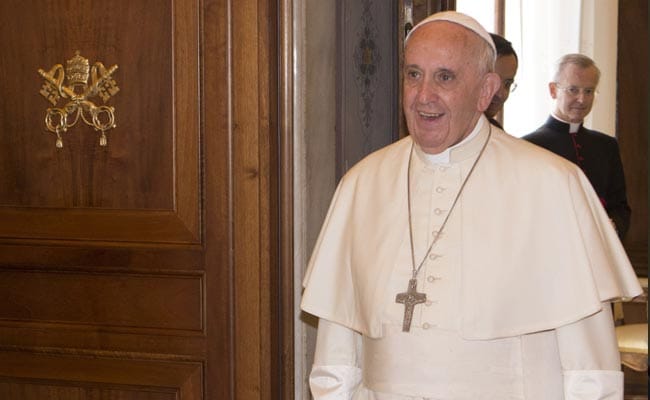
File Photo of Pope Francis. (Agence France-Presse)
Vatican City:
Pope Francis said today that the Hiroshima and Nagasaki bombings still evoked "horror and revulsion" 70 years on and called for a ban on nuclear arms and weapons of mass destruction.
An American plane dropped a bomb on Hiroshima on August 6, 1945, in one of the closing chapters of World War II, turning the bustling city into an inferno and killing an estimated 140,000 people.
Three days later, another atomic bomb was dropped on the city of Nagasaki, killing more than 70,000 people.
In his traditional Angelus prayer at Saint Peter's Square, the pontiff said Hiroshima had come to represent "the symbol of man's disproportionate power to destroy through the erroneous use of scientific progress and techniques."
He recalled it as a "tragic event which even today evokes horror and revulsion."
The pope urged humanity "to forever renounce war and ban nuclear arms and weapons of mass destruction."
"People everywhere should rise up and say in a single voice: no to war and violence, yes to dialogue and peace."
Japan surrendered on August 15, 1945, though opinion remains divided on whether the unprecedented use of the weapons was justified.
An American plane dropped a bomb on Hiroshima on August 6, 1945, in one of the closing chapters of World War II, turning the bustling city into an inferno and killing an estimated 140,000 people.
Three days later, another atomic bomb was dropped on the city of Nagasaki, killing more than 70,000 people.
In his traditional Angelus prayer at Saint Peter's Square, the pontiff said Hiroshima had come to represent "the symbol of man's disproportionate power to destroy through the erroneous use of scientific progress and techniques."
He recalled it as a "tragic event which even today evokes horror and revulsion."
The pope urged humanity "to forever renounce war and ban nuclear arms and weapons of mass destruction."
"People everywhere should rise up and say in a single voice: no to war and violence, yes to dialogue and peace."
Japan surrendered on August 15, 1945, though opinion remains divided on whether the unprecedented use of the weapons was justified.
Track Latest News Live on NDTV.com and get news updates from India and around the world

